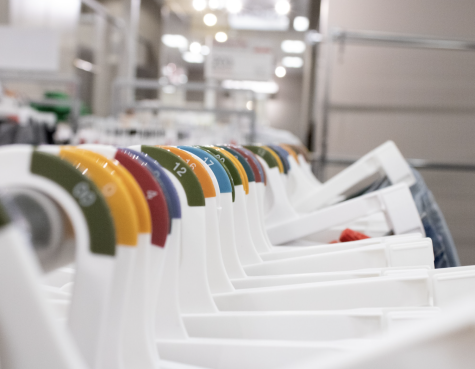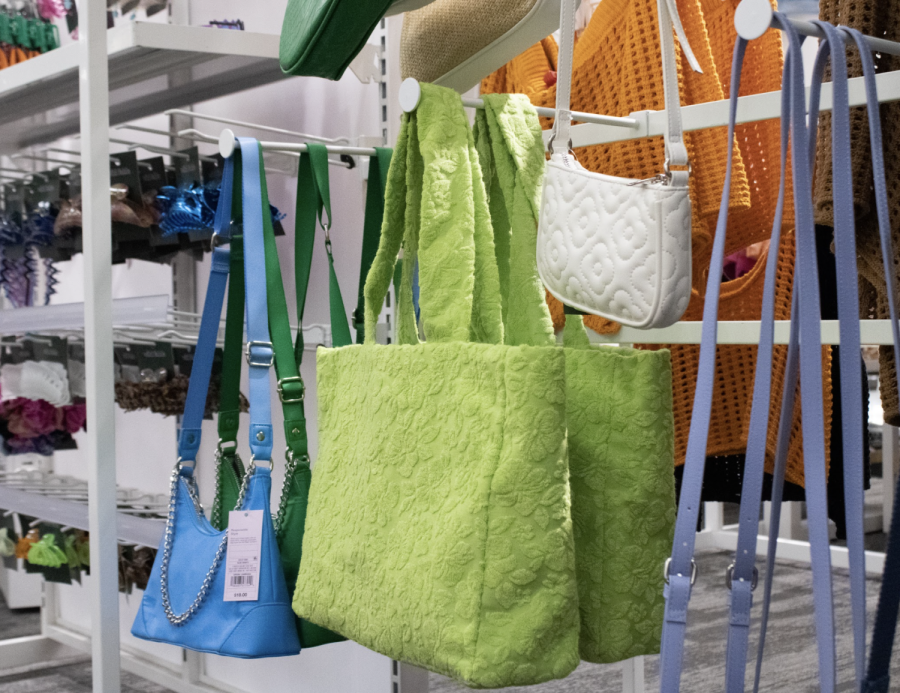EDITORIAL: Consumerism’s Contributions
Consumerism holds authority over society, creating negative environmental impacts
Many brands put an eye-catching color or design onto their products, such as bags, to make people stop and look at the cheap things to buy. They make each product trendy so it can catch on to other people feeling influenced to buy from them.
May 17, 2023
Gallons of water, miles of transportation, hours of labor and a variety of materials exhausted to manufacture one simple product– just to repeat the process all over again, creating an endless loop. As a society, we have the responsibility to break the cycle of overconsumption and become more aware of purchasing power in order to create a more sustainable society.
According to Merriam Webster, consumerism is defined as a preoccupation with and an inclination toward the buying of consumer goods.
Consumerism has an authority over society that successfully creates a normalized loop, working against the best interest of consumers. The enticement to purchase “new” or “better” goods is continual, and the basic ability to appreciate what you already have is lost behind the constant absorption of what you may need or want.
In an era where social media and advertisement are deeply engraved into everyday life, there is a constant influence to consume; there is an unending amount of content giving the illusion that material goods can provide a sense of happiness, leading to a never-ending cycle of the need to accumulate masses of items.
“In this generation every move is anticipated, tracked, bought and sold before it has even happened,” Mark Fisher said in “Capitalist Realism”, a book exploring the morals and alternatives to capitalism.
The constant trend cycles of clothing, makeup, products and more promotes an unfeasible culture where items are designed to be disposed of and replaced quickly. Keeping up with the cycle is an unreasonable and unsustainable practice that will continue on for the sake of capital growth, disregarding the immense damages being done environmentally.
When entering a grocery store or shopping online, hundreds of items are presented in front of you, presented to perfection seemingly effortlessly. It is easy to lose sight of the extensive production process behind every item.
Having any product you could need readily available allows for consumers to become increasingly dissociated from the process behind the production of their goods, depending on a blindness to the fact that the resources being used are finite and take hard labor to produce.

Even with the already existing awareness surrounding consumption practices, there is a societal aversion to taking action. Often, when discussing the importance of practicing sustainability, consumers may find comfort in the fact that they have little power over the establishments that are mass producing items.
Though this mindset remains harmful, consumers have the power to restrict their purchasing while still living a life in comfort. Being aware of the problems surrounding consumption while continuing to consume without moral regard for sustainability perpetuates harmful practices and contributes to the depletion of the environment.
Consumerism has become a destructive force that has far reaching consequences for individuals, society and the plant as a whole. We must reject the idea that our worth as humans is defined by what we own, or else future generations will be deprived from the resources the earth prov









